Reality or illusion? Consciousness or delusion? People with schizophrenia diagnosis used not to distinguish these concepts. What is the root of the problem and whether these people have a choice to find the way out of this condition? Let?s dive deep into the schizophrenia and psychosis symptoms and try to sort it out.
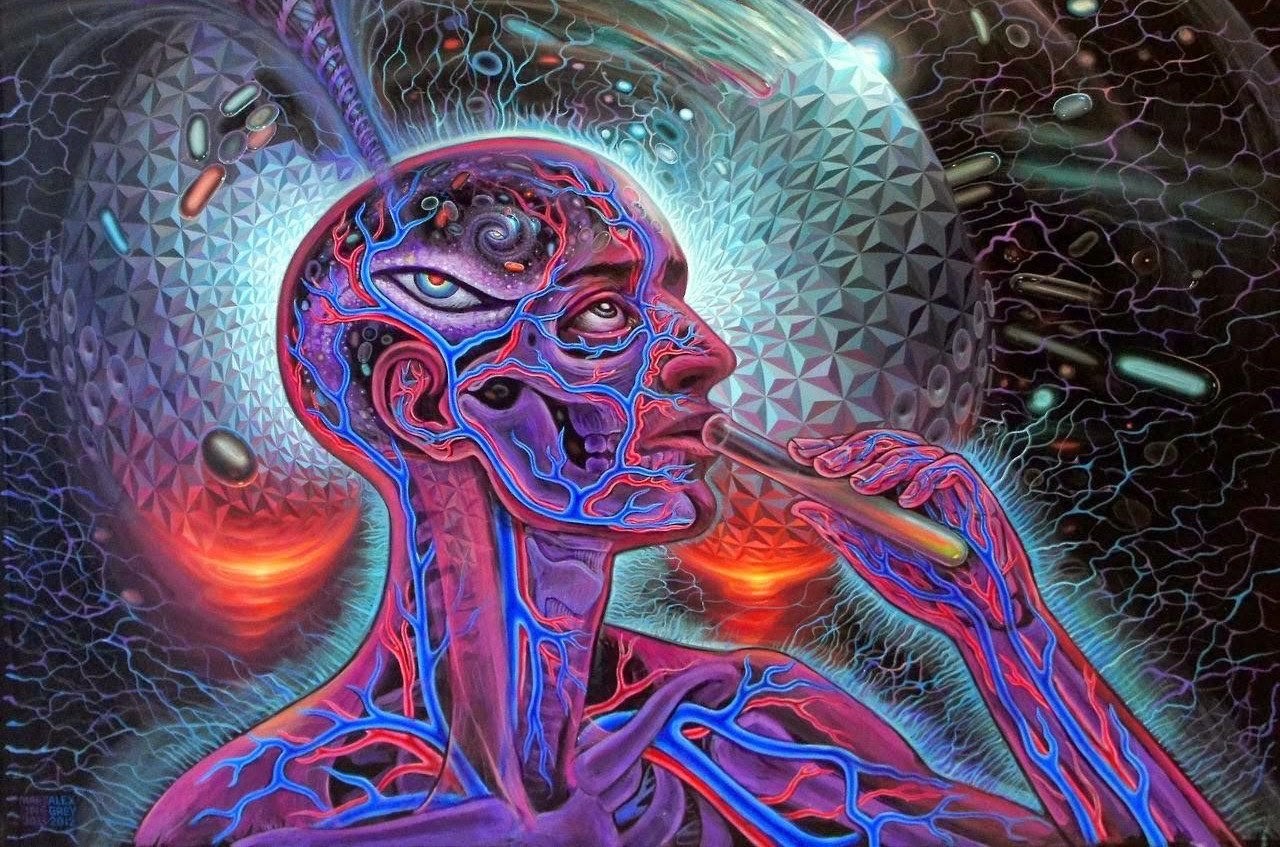
Schizophrenia is a psychotic illness, often prolonged, which can lead to significant changes in the perception of reality by a person. Schizophrenia is a common form of severe mental illness that is often perceived by society as a kind of ?stigma? and is often misinterpreted. People with schizophrenia suffer from disturbed mental activity and experience frequent changes in their emotional status and behaviour. It is often difficult for them to adequately assess reality. Such a condition can have a substantial impact both on the life of the patients and their families.
Schizophrenia is caused by an imbalance between the chemicals that send signals to the brain, as a result of which a person?s perception is focused on unrealistic events and phenomena (distortions of visual or auditory perception and mental activity). At present, it is still not entirely clear for what reasons this imbalance occurs.
 Explore the best CBD products
Explore the best CBD products
Schizophrenia is characterized by episodes of psychosis (loss of contact with reality) between periods of a blunted emotional state and stupor. Symptoms that occur during episodes of psychosis are called ?positive symptoms? and include:
- impaired mental activity,
- delirium (false beliefs, often accompanied by paranoia),
- hallucinations ? usually in the form of prying voices.
These symptoms are often accompanied by anxiety, depression, and excessive activity, such as constant movement and agitation.
On the contrary, stupor includes ?negative symptoms?. Among them are:
- blunted emotions,
- a decrease in the frequency of speech,
- a deterioration in the ability to plan, start or continue any activity,
- a reduction in the perception of positive emotions or interest.
Negative symptoms usually cause noticeable problems associated with social interaction and daily life.
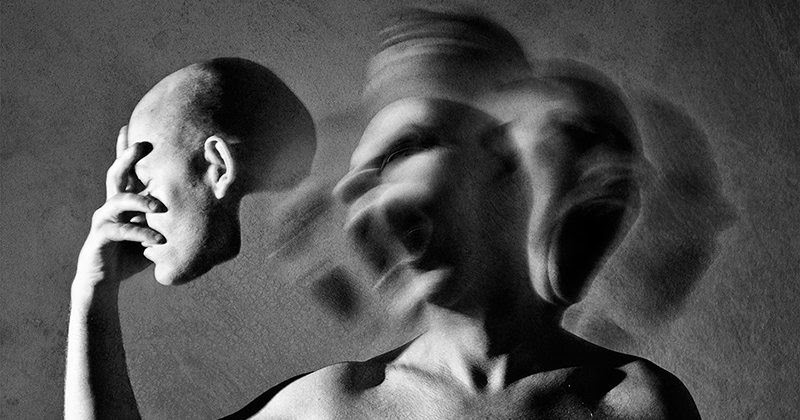
Schizophrenia affects people regardless of race, cultural level, or social status. The disease usually appears at the beginning of the adult period of life (from the age of 20 years) but can develop at any age from the late teenage period onwards. Schizophrenia affects both men and women, although, among men, the disease often develops at an earlier age. The probability of developing schizophrenia in a person throughout life is about 1%.
In 2004, according to the World Health Organization, more than 26 million people suffered from schizophrenia, which makes it possible to put this disease on the list of the 20 most important causes of disability worldwide. Moreover, in 2004 this disease accounted for 30,000 fatal outcomes. Diseases of the cardiovascular system (including coronary heart disease) are the most common cause of death in people with schizophrenia. In patients with schizophrenia, diseases of the cardiovascular system and lungs are estimated to be associated with approximately 60% of early deaths. Moreover, in patients with schizophrenia, the likelihood of dying from cardiovascular diseases (CVD) is more than two times higher than the general population. Increases in mortality due to CVD associated with schizophrenia are most often attributed to the increased incidence of well-known risk factors such as:
- obesity,
- diabetes,
- hypertension,
- dyslipidemia,
- smoking.
However, patients with schizophrenia have limited access to somatic therapeutic procedures, and studies show that CVD risk factors remain untreated.
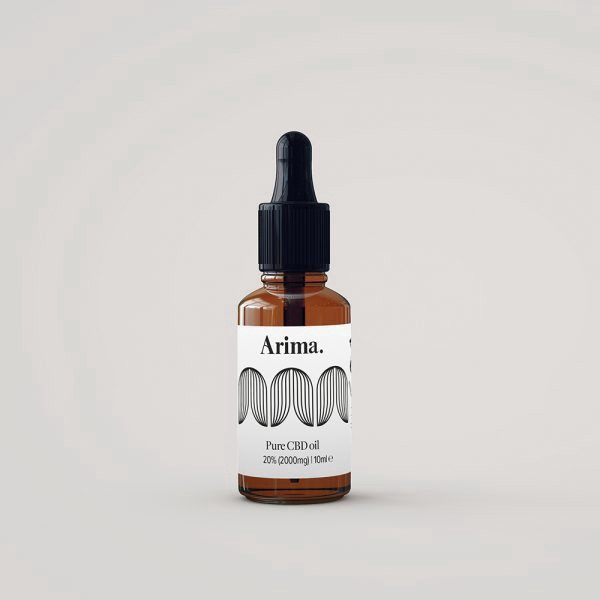 The High Strength 20% (2000mg) CBD oil from Arima is a natural, potent product that will not only make you feel good; but convince you to believe in the true, healing powers of nature, and help you live a healthier life.
The High Strength 20% (2000mg) CBD oil from Arima is a natural, potent product that will not only make you feel good; but convince you to believe in the true, healing powers of nature, and help you live a healthier life.
Schizophrenia is also considered the most expensive disease in the world. Along with other psychotic disorders, it accounts for 1.5% (UK), 2% (Netherlands, France) and 2.5% (USA) of the total national budget allocated to health care.
Despite intensive research, the treatment of schizophrenia is still not possible. However, it is possible to treat and alleviate the symptoms, and to identify the risk factors or ?warning signs? of a new impending relapse of the disease.
Schizophrenia requires long-term treatment. Usually, it requires a combination of drug and psychological therapy. At the same time, during psychotic attacks, it is necessary to keep the patient in the clinic and conduct medical monitoring of his condition.
Despite the severity of this disease, in some people, the pathology can be limited to only one episode of schizophrenia ? therefore, such patients can return to many types of regular activity after treatment and rehabilitation. Unfortunately, other people may develop long-term, debilitating symptoms that limit their ability to learn, work, and maintain social connections.
People with schizophrenia must get expert advice and medical attention to this disease.
Way out of the problem. Role of CBD in psychosis treatment.
Recently, a new way out of the psychosis problem appeared ? cannabidiol. Cannabidiol or CBD is the non-intoxicating compound of the marijuana plant. CBD continues attracting attention as a potential treatment for the range of disorders and illnesses starting from epilepsy to cancer. Among the main conditions which CBD may be used to treat are:
- Alzheimer?s disease;
- Appetite loss;
- Crohn?s disease;
- Anorexia and other eating disorders;
- Epilepsy;
- Cancer;
- Glaucoma;
- PTSD;
- Pain;
- Nausea;
- Multiple sclerosis;
- Cachexia.
Recently, a new brain imaging research has shown the CBD?s ability to reduce psychosis symptoms. According to this study, cannabidiol can reduce the symptoms by ?resetting? activity in three areas of our brain. In the case of gaining success, this theory offers the first explanation of how cannabidiol works in our brain to reduce psychosis symptoms. The results of this study may help generate new treatments and start a new chapter in psychosis and schizophrenia treatment.
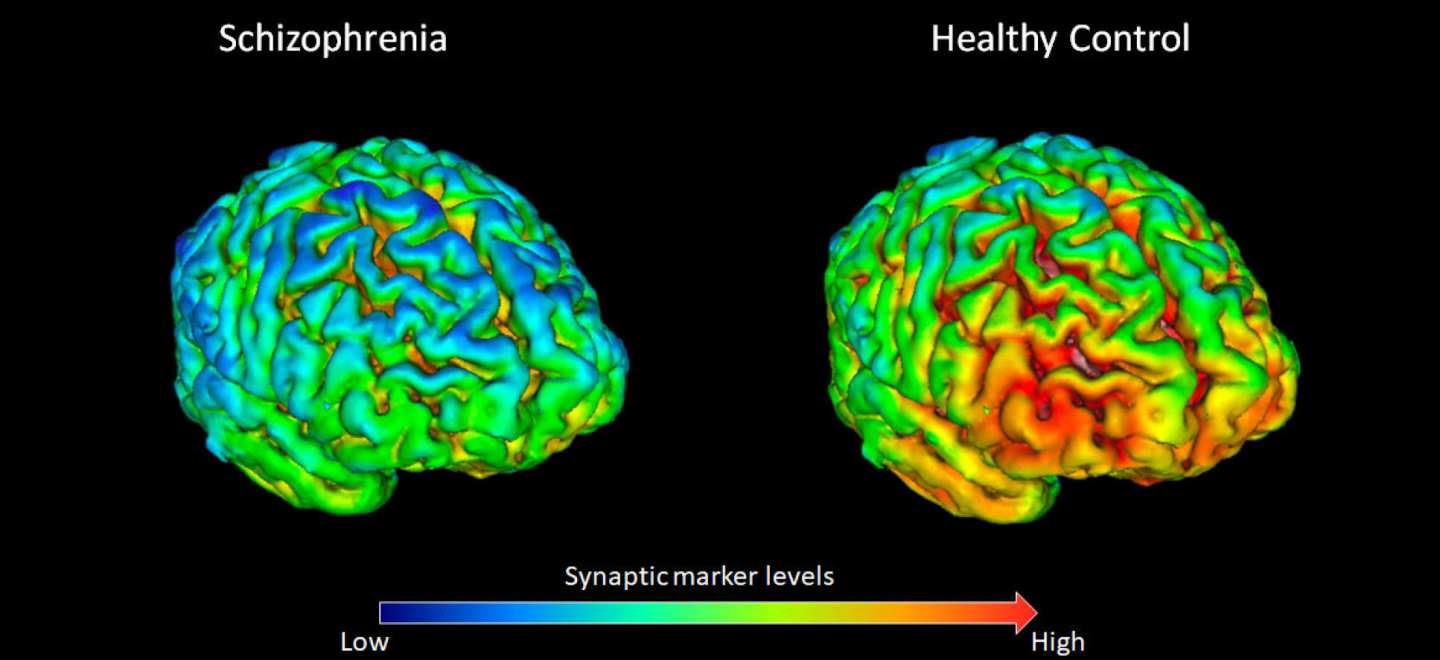
Psychosis can?t be called a single disorder or condition. It is rather a symptom of several other disorders characterized by detachment from real life. A typical psychotic episode includes hearing, seeing or believing in things that aren?t real. For today, the exact causes of psychosis are still unknown. There are assumptions that this condition can be triggered by trauma, mental illness, extreme stress or substance abuse. It is believed that even a lack of sleep may cause a psychotic episode.
A lot of people often associate psychosis with schizophrenia, although it affects a much larger segment of our population. According to the National Institute of Mental Health, at least 100 000 people in the US experience their first psychotic episode.
The study that gave such promising results included thirty-three participants, all of that were experiencing psychotic symptoms. Also, a smaller group of healthy participants took part in the study as a control group. Half of the first group with psychosis participants was given one oral dose of CBD with the 600mg dosage. The other half of this group got an identical capsule with a placebo. The control group wasn?t given any drug. After that, all the participants of the study were asked to complete a memory task aimed at engaging three brain areas that are linked to the beginning of psychosis:
- striatum;
- midbrain;
- medial temporal cortex.
During the task, the brains of all of the participants were scanned with an MRI scanner. The obtained scans showed abnormal activity in the brains of psychosis participants in comparison with the healthy control group. These results were expected. However, the brains of participants taking CBD dosage showed less severe abnormalities in comparison with the brains of those who took a placebo instead of cannabidiol. Such results suggest that the cannabidiol compound can ?reset? abnormal activity in the critical brain areas. The obtained results of the study opened a new door into the mechanism of our brain reaction, allowing an absolutely new drug that will be able to work in a completely different way than a traditional antipsychotics.
This study gave promising results that may change the whole history of schizophrenia and psychosis treatment one day. However, the conducted research had limitations and, of course, it?s not enough to state confidently about the CBD?s ability to treat such conditions. It was a small study with a methodology that is unable to account for every factor that may influence the outcome. Besides this, researchers also noted that the obtained results might be caused by the rapid changes in cerebral perfusion that in most cases occur with a single dose of psychoactive drugs. It means that the effect of CBD on the brains of study participants may be short-term. Also, it is unclear whether these positive effects will persist after the longer-term cannabidiol dosing.
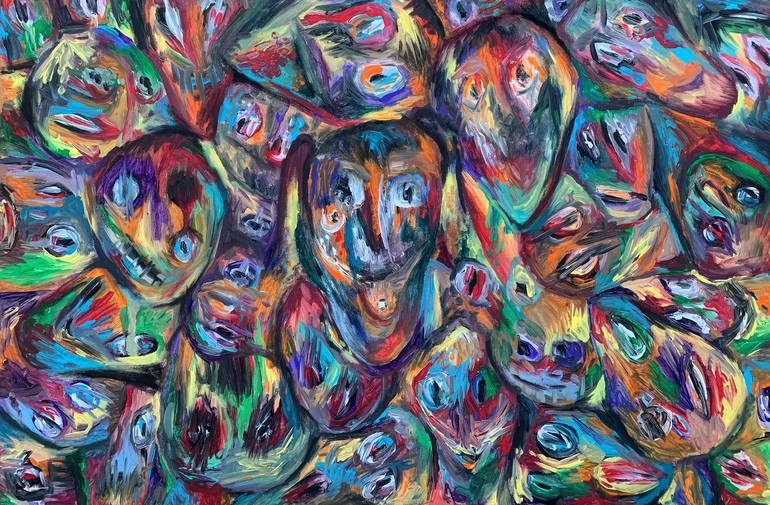
The next step that is necessary to shed light on these results is a large-scale human trial. Only on such scale, it will be possible to replicate the results of the study and determine if CBD is a suitable treatment for such disease. In case the results of the study will be successful, the new CBD-based drug will be differentiated from all other medications available on the market. Today, most of the medications used for schizophrenia and psychosis treatment produce inconsistent results. Some of the most common meds also have notoriously severe side effects, such as overpowering sedation and muscle tremors.
Nowadays, maximally safe treatment for young people with psychosis is a hot button issue. Safety is one of the main advantages of cannabidiol that favourably distinguish it from the crowd of other drugs available. Also, CBD seems to be very well-tolerated, which, in case of successful results of the trials, makes it an ideal treatment for today.
There is another move forward for CBD as a treatment for brain-based disorders. Recently, the FDA approved the first drug with a CBD in its composition to treat severe forms of epilepsy. The CBD derived from cannabis still refers to a Schedule 1 controlled substance under federal law in the US. However, hemp-derived CBD is more widely accessible, though its legality in terms of federal law is still doubtful.
Also, according to the results of an earlier study conducted by the same research team, cannabidiol seems to counterbalance the tetrahydrocannabinol (THC) effects on the human organism. THC is also the compound extracted from marijuana, although unlike CBD, it gets users high. After several studies, THC has been linked to the onset of psychosis in some users. In addition to this, it appears to imitate aspects of psychosis in the brain. If cannabidiol turns out to be an effective antipsychotic, these findings will highlight the striking paradox of a marijuana plant.
View from the inside. Mechanism of CBD?s antipsychotic action
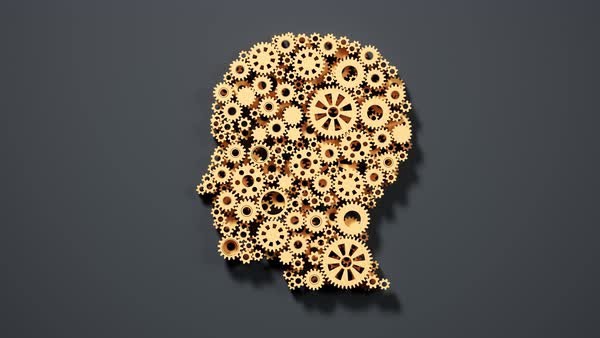
All the symptoms of schizophrenia can be divided into three broad groups:
- Positive symptoms. Include excesses in perceptions or behaviour such as delusions and hallucinations.
- Negative symptoms. Represent deficits of perceptions or behaviour such as lethargy, apathy, and the lack of motivation.
- Cognitive symptoms. Involve the inability to understand information or to use it productively. The symptoms include problems with sustaining attention, decision making, and retaining information in memory. Cognitive symptoms of schizophrenia are most closely related to the ability of a person to function normally in everyday life.
Even with a great deal of different research aimed at permitting of pro-cognitive drugs for schizophrenia, no cognitive enhancer is available nowadays. While some current studies are suggesting that recently developed atypical antipsychotics benefit cognitive deficits, this finding still has remained controversial. Many researchers believe that the effect of atypical antipsychotics on cognitive schizophrenia symptoms is due primarily to their impact on alleviating negative symptoms. Nevertheless, some studies have shown that both typical and atypical antipsychotics induce cognitive deficits in both healthy individuals and patients with schizophrenia.
Currently, researchers have found that the use of cannabidiol may decrease the cognitive symptoms that were found in schizophrenia patients after their treatment with antipsychotic medications. A group of researchers in Cologne, Germany studied thirty-nine patients with the schizophrenia diagnosis. Nineteen of them were treated with antipsychotic drugs, while others got the dose of CBD. The obtained results of the study showed improved symptoms in both groups. The strength of the effect among these groups wasn?t different. The noticeable benefit of CBD was that patients of one of these groups didn?t feel the most side effects that frequently result from antipsychotic medication. It is a significant improvement of schizophrenia medications as antipsychotic drugs have long been known to cause serious side effects on patients.
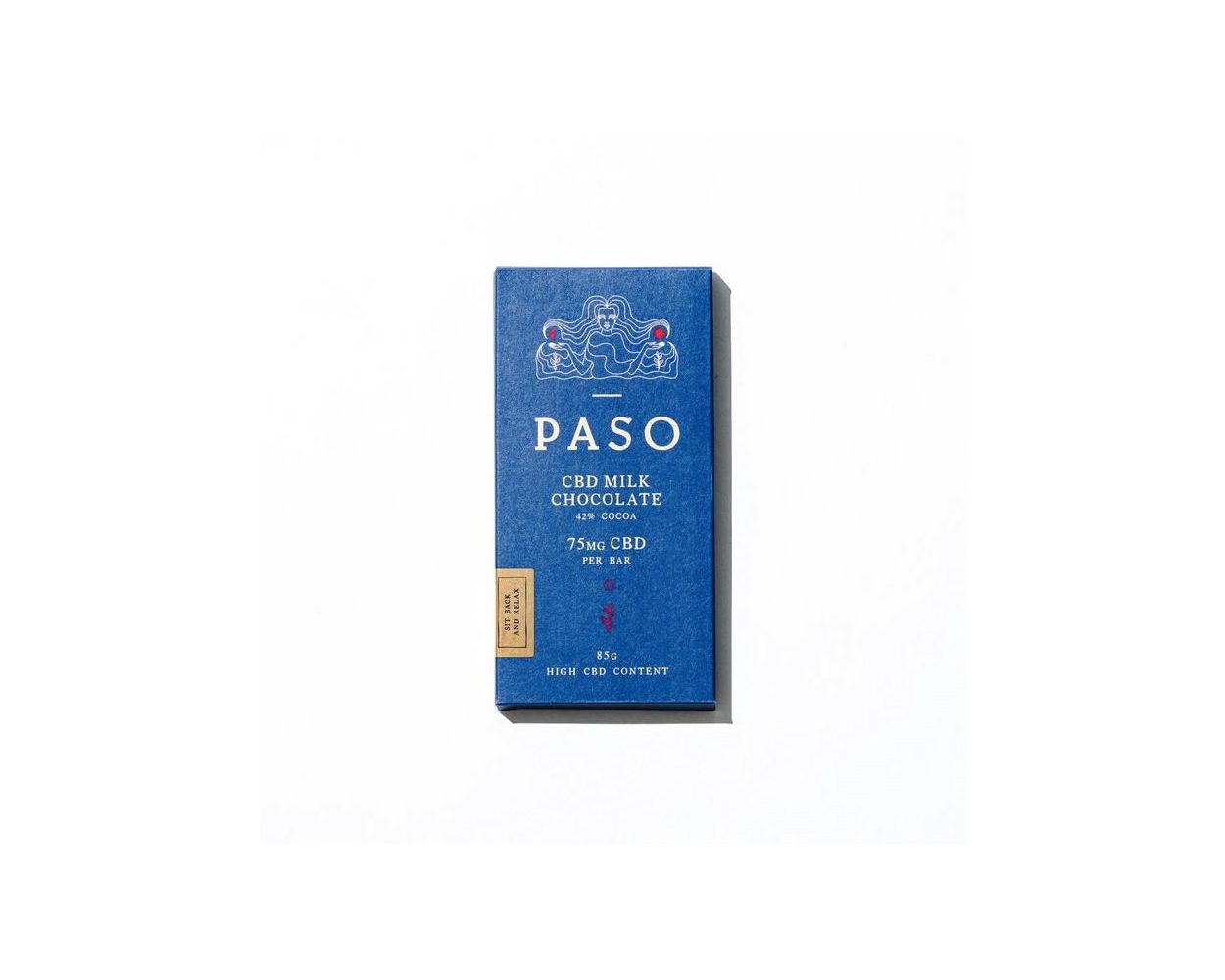 Silky smooth ? Paso Milk chocolate leaves a creamy-like aftertaste in your mouth. Great as a treat to have on-the-go or maybe just to keep a secret stash in your draw! It?s great accompanied with a nice rich black coffee!
Silky smooth ? Paso Milk chocolate leaves a creamy-like aftertaste in your mouth. Great as a treat to have on-the-go or maybe just to keep a secret stash in your draw! It?s great accompanied with a nice rich black coffee!
Moreover, some of the effects are irreversible. Among the most common side effects of antipsychotic medications are reduced feelings of pleasure and motivation and various movement disorders. The newest generation of antipsychotic drugs is improved, although they also often lead to significant weight gain and become directly related to increased risk of developing diabetes. Not all of the side effects are life-threatening, but they remain the major obstacles to correct treatment compliance.
In one of the recent studies, researchers examined which pattern of including CBD in the schizophrenia treatment will be the most beneficial for patients. They compared CBD taken as monotherapy and as an active agent added to regular antipsychotic drugs. In both cases, researchers noticed the improvement of the symptoms in patients with schizophrenia. The strongest effects were found among patients in the early stage of the disorder. Both these ways of schizophrenia treatment are effective and require more studies to prove the CBD effects and evaluate the results among larger groups of patients. Researchers also stated that smoking marijuana, or ingesting it in some other way, will not decrease the schizophrenia symptoms and can even make them worse. Due to the predominance of the THC relative to CBD in the whole plant, the patients? condition may be worsened, and the symptoms may occur more actively.
How does it all work? What is happening in our organism, giving CBD a chance to become one of the most perspective schizophrenia treatments for today? The exact mechanism for the antipsychotic properties of cannabidiol is still unknown. CBD doesn?t bind to cannabidiol receptors of our endocannabinoid system like THC, as well as it does not significantly affect dopaminergic neurons like other antipsychotic medications. It was found that CBD increases the CSF levels of anandamide ? one of the main endocannabinoid ligands. Such boosting of anandamide level may occur by blocking its degrading enzyme ? fatty acid amide hydrolase or by competing with anandamide intracellular transporters. The anandamide levels are directly related to the severity of psychotic symptoms in schizophrenia patients. It was shown that increased levels of this endocannabinoid ligand in psychotic patients treated with CBD might lead to clinical improvement. Based on this, it can be suggested that cannabidiol contributes to the improvement of psychosis symptoms by increasing the endogenous levels of anandamide. Nevertheless, a lot of further studies are still needed to confirm this hypothesis.
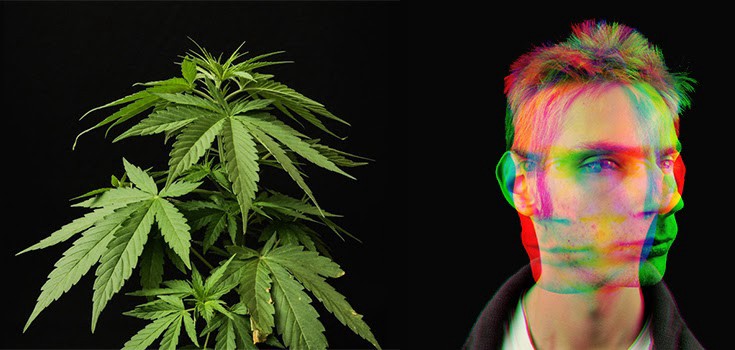
The schizophrenia treatment we have for today is only partially effective and mostly among patients with positive symptoms. This has led researchers to focus on the new pharmacological targets, and the endocannabinoid system became one of them. During several studies, it was shown that patients with a schizophrenia diagnosis have endocannabinoid system abnormalities. However, it wasn?t proven, and the potential therapeutic effects of CBD are not conclusive. The mechanism of cannabidiol action on the psychosis symptoms is poorly understood, and there are many discrepancies in clinical results. Such a divergence could be related to stages of psychosis, different CBD dosage, and even heterogeneity of schizophrenia itself.
It has been previously shown in some studies that cannabis strains with low levels of CBD and a high level of THC can cause increased psychiatric effects such as anxiety, paranoia, and addictive behaviour. It also wasn?t fully understood why that was occurring, and the mechanism of both THC and CBD action was covered in mystery. One research team at Western University decided to investigate the role of a molecule in the brain?s hippocampus called extracellular-signal-regulated kinase (ERK) which triggers the THC?s neuropsychiatric effects. It has been known for years that cannabis strains high in THC and low in CBD increase the probability of psychiatric side effects. The research team decided to identify the molecular mechanisms by which cannabidiol may block the THC-related side effects.
 If you want to discover core CBD oil benefits, 500mg CALM CBD oil by Grass & Co. is the right product to start with. Unlike pure oils, this one is flavoured with mint.
If you want to discover core CBD oil benefits, 500mg CALM CBD oil by Grass & Co. is the right product to start with. Unlike pure oils, this one is flavoured with mint.
According to the results of the research published in the Journal of Neuroscience, rats that were given THC had higher levels of activated extracellular-signal-regulated kinase (ERK). They also were more sensitive to fear-based learning and showed more anxiety behaviour. At the same time, rats that were given both THC and CBD acted similarly to the control group of rats. All of them had a normal level of ERK, were less sensitive to fear-based learning and showed less anxiety behaviour in comparison with the first group. Based on the results of this study, it was proposed that CBD can block the ability of THC to overstimulate the ERK pathway in the brain?s hippocampus, thereby preventing its negative side-effects.
The results of the research open up a new molecular frontier giving the ability to develop safer and more effective THC formulations. Moreover, these findings may have important implications for long-term cannabis use and prescribing cannabis in general. For example, for patients who are more prone to the cannabis-related side effects, it is important to substitute their medications with strains containing high CBD and low THC levels.
Another interesting fact revealed during the studies is that cannabidiol alone doesn?t cause any effect on the ERK pathway. At the same time, by co-administering CBD and THC, it became possible to reverse the direction of changes on a molecular level completely. Cannabidiol was also able to modify the addictive-like behaviour caused by THC and anxiety-like reaction.
Researchers state the studies will be continuing to understand better the specific features of this discovered molecular mechanism. The Western University research team is going to examine all other possible ways to formulate THC with fewer side effects and to improve the efficacy of CBD-derived therapies.
What about the evidence? Studies and research.
The main driver of all of the CBD studies was the cannabidiol difference from the other compounds of the cannabis plant. Unlike the main psychoactive component of the plant, THC, CBD doesn?t bind to cannabinoid receptors and shows a wide variety of different, non-psychoactive effects on human health. For the moment, there are more than a hundred clinical trials on all of the potential therapeutic effects of cannabidiol. All the trials and studies are available at ClinicalTrials.

The development of cannabidiol-based medications is gaining momentum with each day. Recently, the FDA approved the CBD-derived medication called Epidiolex, which is an oral solution of pure cannabidiol. The drug is aimed at the treatment of seizures associated with Dravet syndrome and Lennox-Gastaut syndrome. Besides the seizure disorders, Epideolex can be recommended for other conditions at the discretion of the physician.
CBD for psychosis and schizophrenia treatment is a new wave in the CBD studies that seems very promising. The use of cannabis strains containing a high CBD level may reduce the psychotic symptoms among patients with a schizophrenia diagnosis. In addition to this, CBD may be used for decreasing the cognitive impairments and THC-induced psychotic symptoms. Cognitive deficits occur almost in 90% of schizophrenia patients, usually preceding other symptoms and minimally responding to all the pharmacological treatments available today. The potential cannabidiol benefits on cognition among patients have critical importance and may become a breakthrough in schizophrenia treatment methods. Potential CBD benefits for schizophrenia and psychosis sound promising and perspective, but what about actual results? Let?s take a closer look at the studies held and the trials planned in the future.
The first report about the possible use of CBD as a potential antipsychotic medication was published by Zuardi and his research team in 1995. The study was held with a 19-years old patient with a schizophrenia diagnosis. The patient was treated for four weeks with 1500mg of the daily CBD dose. At the end of the study, the significant improvement of acute psychotic symptoms was noticed. Another study held in 2006 was aimed at the evaluation of CBD effects on three patients with treatment-resistant schizophrenia. In this research, CBD was used as a monotherapy. The results of the study showed improvement only in one of three patients. A later study included six patients with Parkinson?s disease who were treated with the CBD doses up to 400 mg for four weeks. At the end of the course, the improvement of psychotic symptoms was noticed among all patients.
 Explore the best CBD brands in the world
Explore the best CBD brands in the world
After the promising results of these studies, the antipsychotic properties of cannabidiol started to be researched in three clinical trials. In 2012, the first controlled clinical trial on the CBD?s therapeutic effects was published by Leweke and colleagues. This trial included forty-two patients with schizophrenia. All of the individuals were treated daily with a 600?800 mg daily dose of CBD for four weeks. The results of the study were compared with the data after taking amisulpride on acute psychosis. The trial concluded that cannabidiol showed effective results as amisulpride for treating the psychosis symptoms. However, the main difference between these medications was in the absence of adverse effects in the case of taking cannabidiol. Such common side effects as weight gain and extrapyramidal symptoms haven?t been noticed.
Two other double-blind, randomized controlled clinical trials were held by McGuire and colleagues in 2017. Mental disorders can be a result of the inability to regulate dopamine levels. Because of this, many antipsychotic drugs are aimed at blocking dopamine to help treat patients suffering from psychosis attacks. However, according to professor McGuire from the King?s Cross College London, dopamine is not the only neurotransmitter whose function changes in psychosis. Professor states that in some patients, dopamine function may remain relatively normal.
This study held in King?s Cross College London used cannabidiol as an adjunctive medication for treatment. Eighty-eight schizophrenia patients with acute psychosis and other non-affective psychotic disorders were observed. All the participants of the trial received either the 1000 mg daily CBD dose or placebo in combination with their routine antipsychotic medications for six weeks. Throughout the study, the cannabidiol group showed less psychotic symptoms in comparison with the placebo group. In addition to this, patients who were treated with CBD together with other antipsychotic medications showed a significant improvement in their controlled motor speed and cognitive functioning. A similar study was held by Boggs and colleagues who also investigated the antipsychotic CBD effects but with a lower dosage. Thirty-six patients with chronic schizophrenia were given 600 mg daily dose of CBD as an adjunctive treatment for six weeks. The results of the trial didn?t show any significant differences between the placebo and CBD groups throughout and at the end of the study. Cognitive performances and psychotic symptoms of CBD and placebo patients remained similar.
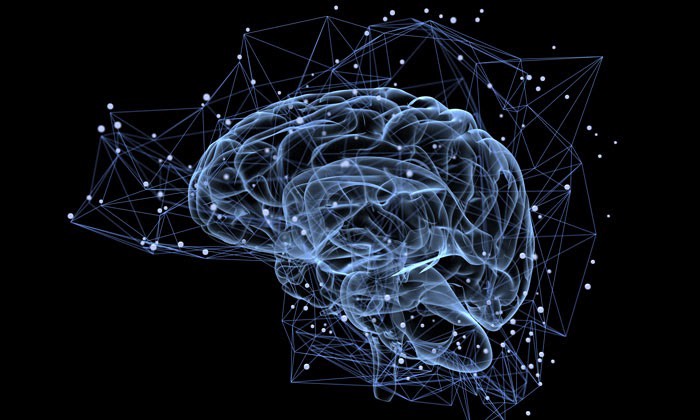
Another blind study conducted by JAMA Psychiatry included fifty-two individuals. Thirty-three of them were diagnosed with a high clinical risk of psychosis, while other nineteen healthy participants represented the control group. The primary goal of the study was to understand the exact mechanism of the CBD?s antipsychotic action on the medial temporal cortex which is ?responsible? for long term memory, midbrain which helps us to process light and sound signals, and striatum which supports a voluntary movement. All the participants of the trial were split into three groups ? seventeen individuals formulated the placebo group, sixteen patients represented the experimental group, and the other nineteen healthy participants remained as a control group. For three months, the experimental group received a one-time 600 mg dose of cannabidiol, seventeen participants received a placebo, and the control group didn?t receive anything. To correctly monitor the progression or regression of the disease among all participants, researchers used functional MRI.
The results of the trial showed that the control group remained steady, the placebo group saw some reductions, and the experimental group showed the stimulation of some regions of their brain more than the placebo group. However, the stimulation of brain areas was still less developed than in the control group. Such results gave researchers another look at how cannabidiol decreases psychosis symptoms by increasing the brain?s activity level and improving reduced functions.
Cannabidiol is a quite versatile compound of the marijuana plant. It is capable of improving mental conditions such as psychosis and schizophrenia, as well as alleviate pain and anxiety of the permanently growing number of people with mental disorders. Clinical trials and research continue to support the medicinal efficacy of this compound, delving deeper into its therapeutic properties.
Exaggerated CBD benefits or real perspective for the future?
 These transdermal patches are great at treating localised pain. Or if you experience pain if you?re sitting for long periods of time. Equally people can experience muscle tension pain daily from long distance driving.
These transdermal patches are great at treating localised pain. Or if you experience pain if you?re sitting for long periods of time. Equally people can experience muscle tension pain daily from long distance driving.
With a rapidly growing interest in cannabis use in medicinal purposes, it?s time to finally puzzle out whether it is just another hype or real hope for patients with mental disorders. The purported CBD benefits increase its popularity and draw a blue-sky scenario for the future in case of successful studies and human trials. Let?s try to sort out the current information we have about cannabidiol for psychosis and answer the most frequent CBD questions.
- Can cannabis be a beneficial substitution to the routine antipsychotic medications?
The answer is no. First of all, the CBD studies are continuing, and the final decision about cannabidiol efficiency for alleviating psychotic symptoms hasn?t been made yet. The only one cannabis medication approved by the FDA for today is Dronabinol, which is THC-based. In addition to this, the majority of the published reports investigated the CBD antipsychotic effects combining it with the regular antipsychotic drugs patients were taking throughout the study.
- How does CBD work as an antipsychotic agent?
It is well known that cannabidiol has a minimal affinity to cannabinoid receptors. However, it appears that CBD can also act as an agonist at 5-HT1A receptors and as a partial agonist of dopamine D2 receptors decreasing mesolimbic dopamine activity. In addition to this, cannabidiol increases the availability of the endogenous cannabinoid anandamide, which may also have antipsychotic properties.
- Which form of cannabis may become the best choice for patients with schizophrenia?
It is also a doubtful question as cannabis studies are still ongoing, and none of the forms can be recommended until the results of the research will be approved. Different types of cannabis plants might contain more THC or variable amounts of CBD. In most cases, the amount of CBD in the whole cannabis leaf is minimal, and the THC to CBD ratio is significantly increasing over the past decade. It means that most forms of cannabis should be avoided by individuals with mental disorders due to the high THC content that can cause serious adverse effects.
- What about CBD oil available online?
CBD becomes increasingly available all over the globe. It can be designated as a legal hemp product with the THC level less than 0.3% or as a cannabinoid in the states where medical cannabis is legalized. With the rapid growth of cannabidiol popularity, lots of cannabis products are available online on in dispensaries. Several studies have shown that the majority of cannabis products offered online are labelled inaccurately, under- or over-reporting the CBD and THC content. Moreover, some of CBD products have been found to have almost no cannabidiol at all. Such unreliability of the labelling significantly complicates the predicting of the effects of CBD-based products that are not subject to FDA purity standards for medications or dietary supplements. Moreover, it raises questions about the CBD sources and the reliability of its dosing.
Bottom line
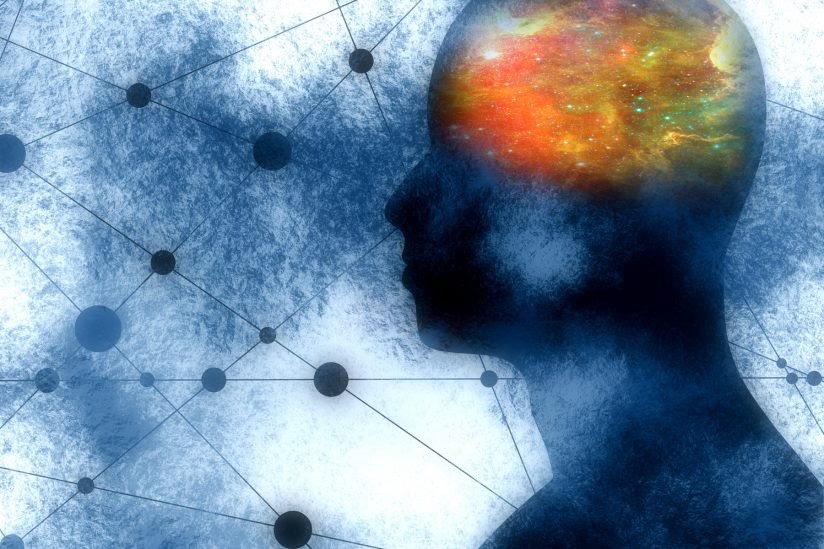
The potential therapeutic benefits of cannabidiol aren?t limited to schizophrenia treatment. CBD may also be used for treating or preventing psychosis related to the recreational use of cannabis. To date, cannabis is the most commonly used illicit drug in the US. Due to its actively spreading legalization for medical and recreational purposes, a lower proportion of people understand all the possible risks associated with regular cannabis use. In addition to this, the ratio of CBD-to-THC in street cannabis is decreasing. Starting from 1:14 in 1995 it had decreased to 1:80 in 2014. What does it mean for regular cannabis users? Low CBD levels may affect the overall impact of frequent cannabis use on our physical and mental health. When discussing the use of cannabis for medicinal purposes, it is crucial to distinguish cannabidiol, with all its potentially beneficial effects, from THC, with its controversial adverse effects, especially on people with psychotic disorders.
Cannabidiol is gaining popularity due to its purported health benefits, but the evidence supporting its therapeutic role in psychiatry remains at the very beginning. Current CBD benefits are limited to positive symptoms of psychosis such as delusions and hallucinations. Such negative symptoms as mood disruption and affective flattening are not affected by cannabidiol. To date, CBD is available as the FDA-approved drug for the treatment of rare forms of epilepsy, although its benefits in patients with schizophrenia and psychosis are uncertain because of the mixed results of clinical trials. Furthermore, cannabidiol was administered as an adjunct treatment in the majority of existing studies, and all the patients continued to receive their regular antipsychotic medications. To fully understand the potential benefit of CBD as a standalone treatment for schizophrenia and psychosis, further research is required.
Verified by a Healthcare Professional
Anastasiia Myronenko

Anastasiia Myronenko is a Medical Physicist actively practicing in one of the leading cancer centers in Kyiv, Ukraine. She received her master?s degree in Medical Physics at Karazin Kharkiv National University and completed Biological Physics internship at GSI Helmholtz Centre for Heavy Ion Research, Germany. Anastasiia Myronenko specializes in radiation therapy and is a fellow of Ukrainian Association of Medical Physicists.
This article includes the promotion of products and services sold on Alphagreen and affiliate links to other businesses.
Alphagreen and its materials are not intended to treat, diagnose, cure or prevent any disease. The information and products presented on this site are not intended for medical use nor do they make any medical claims. Always seek the advice of your physician or another qualified healthcare provider for any questions you have regarding a pre-existing medical condition, are pregnant and/or are breastfeeding, and before undertaking any diet, exercise or another health-related program.
References
https://global.oup.com/academic/product/schizophrenia-9780198813774?cc=ua&lang=en&
http://www.schizophrenia.com/szfacts.htm
https://www.who.int/healthinfo/global_burden_disease/2004_report_update/en/
https://www.ncbi.nlm.nih.gov/pmc/articles/PMC2951589/
https://www.researchgate.net/publication/315875159_Life_Expectancy_and_Morbimortality_in_Schizophrenia_Are_we_doing_all_we_can
https://www.ncbi.nlm.nih.gov/pubmed/15925493
https://www.academia.edu/15165686/Costs_of_schizophrenia_during_5_years
https://jamanetwork.com/journals/jamapsychiatry/fullarticle/2697762
https://www.nimh.nih.gov/about/directors/thomas-insel/blog/2015/mental-health-awareness-month-by-the-numbers.shtml#10
https://link.springer.com/article/10.1007%2Fs12035-016-9697-5
https://clinicaltrials.gov/
https://www.fda.gov/news-events/press-announcements/fda-approves-first-drug-comprised-active-ingredient-derived-marijuana-treat-rare-severe-forms
https://www.sciencedirect.com/science/article/pii/S0920996411002246
https://www.ncbi.nlm.nih.gov/pubmed/7559378
https://journals.sagepub.com/doi/abs/10.1177/0269881106060967
https://www.ncbi.nlm.nih.gov/pubmed/18801821
https://www.nature.com/articles/tp201215
https://ajp.psychiatryonline.org/doi/full/10.1176/appi.ajp.2017.17030325
https://link.springer.com/article/10.1007%2Fs00213-018-4885-9
https://jamanetwork.com/journals/jamapsychiatry/article-abstract/2697762
https://www.independent.co.uk/news/health/cannabis-extract-marijuana-psychosis-treatment-mental-health-cbd-thc-cannabidiol-kcl-a8111386.html
https://www.ncbi.nlm.nih.gov/pmc/articles/PMC6678854/
https://www.ncbi.nlm.nih.gov/pubmed/22716160
https://www.thelancet.com/article/S2215-0366(19)30086-0/fulltext
https://journals.sagepub.com/doi/full/10.1177/2045125319881916
https://medium.com/parkinsons-uk/parkinsons-psychosis-and-cbd-ask-the-expert-f971a563adf7
https://medium.com/invisible-illness/compound-in-marijuana-may-help-treat-schizophrenia-177840b7a723
https://medium.com/@gidmk/can-cannabis-cure-psychosis-383017d55894
https://medium.com/parkinsons-uk/cbd-trial-your-questions-answered-86a574c7db52
https://elemental.medium.com/the-untapped-potential-of-medical-cbd-6676f94ee7c5
Cannabis study reveals how CBD offsets the psychiatric side-effects of THC
https://www.news-medical.net/health/Can-CBD-Be-Used-to-Prevent-or-Treat-Psychosis.aspx
https://www.forbes.com/sites/daviddisalvo/2018/08/31/study-cbd-from-marijuana-may-reset-the-brain-to-counteract-symptoms-of-psychosis/#4d93834b6a36
https://www.psychiatrictimes.com/schizophrenia/cannabidiol-adjunctive-treatment-schizophrenia
https://www.mdedge.com/psychiatry/article/199443/schizophrenia-other-psychotic-disorders/cannabidiol-cbd-schizophrenia


